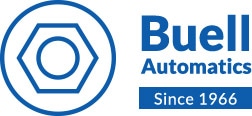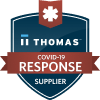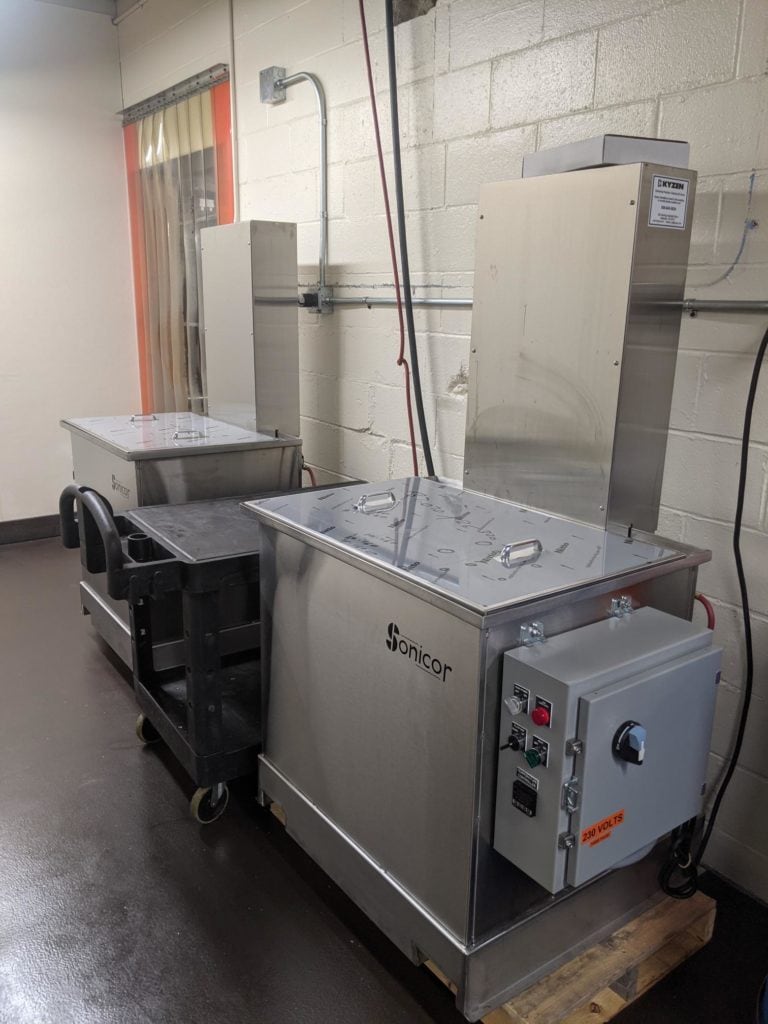Passivation is a chemical process that removes free iron from the surface of stainless steel. As a result, it increases the corrosion resistance of parts and products made from the material.
Passivation is a suitable treatment for many large-sized components and assemblies. At Buell Automatics, we perform the service in-house for customers across a wide range of industries. Combined with our other manufacturing capabilities, it enables us to produce durable and reliable product solutions for virtually any customer’s application.
How the Passivation Process Works
The passivation process begins with the inspection of the stainless steel components. The inspection reveals what—if any—contaminants are present on the surface of the components. The components are then cleaned and placed in a basket, which is submerged in a nitric acid or citric acid bath. The acid concentration and temperature and the length of time the components are submerged are tailored to suit the specific stainless steel alloy, ensuring free iron and other remaining contaminants are removed effectively. The processed materials have a cleaner surface and exhibit better corrosion resistance.
Most stainless steel materials can be passivated. However, the results may vary based on the type of alloy and its surface quality.
Benefits of Passivation
Besides increased corrosion resistance, passivation offers many other benefits to stainless steel parts and products. For example:
- It removes surface contaminants left by previous machining operations.
- It removes black marks produced by previous forging and forming operations.
- It removes heat tint generated by previous welding operations.
- It removes rust from existing components.
Applications of Passivation
Passivation is used in many industries because it provides corrosion-resistant, clean parts through a cost-effective process. Some of the most common applications for passivation include:
- Aircraft components
- Filter housings
- Food and beverage processing equipment parts
- Forging and castings
- Frameworks
- Interior tower components
- Marine parts
- Medical components
- Pipes and piping
- Pressure vessels
- Springs and stampings
- Water treatment and distribution system parts
Standards & Compliance
Passivated components are commonly used in highly regulated applications. The team at Buell Automatics can passivate components to the ASTM A967 standard. However, we also offer outsourced passivation services, which enable us to create components that meet AMS 2700 and ASTM A380 standards.
Industries Served
Buell Automatics provides custom manufacturing services, including passivation, to customers within a diverse set of industries, including:
- Aerospace
- Automotive
- Chemical Manufacturing & Distribution
- Food & Beverage
- Healthcare
- Household & Personal Care
- Laser
- Medical Device
- Military & Defense
- Pharmaceutical
- Power Generation
- Semiconductor
- Water & Wastewater
Partner With Buell Automatics for Your Passivation Needs Today
If you’re considering passivation to chemically treat and clean your stainless steel components, it’s important to partner with an experienced passivation services provider. They will have the knowledge and skills needed to ensure your components receive a chemical bath that’s perfectly matched to suit their unique needs.
At Buell Automatics, one of our core service offerings is in-house passivation. Our team has the equipment, experience, and expertise to manage passivation requests for components of virtually any size and shape, including oversized and bulky ones, to the ASTM A967 standard. We are committed to providing customers with the highest quality solutions. By integrating inspection, monitoring, testing, and other quality management processes into our in-house passivation operations, we guarantee consistent cleanliness and corrosion resistance.
To learn more about our passivation capabilities or partner with us on your next project, contact us at (585) 328-7430 or request a quote.





